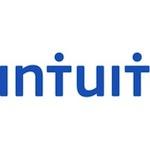
In announcing plans to buy Demandforce, a marketing Software-as-a-Service provider, Intuit is signaling its intention to grab a bigger share of the high-end of the small business market.
With its market-leading Quickbooks product, Intuit is already the dominant force in sales of accounting and payroll software for small businesses. In an attempt to expand its portfolio – especially in the fast-growing SaaS segment, the company said Friday it would acquire Demandforce in May for $423.5 million in cash, making it the company’s most expensive purchase under chief executive Brad Smith.
From the Yellow Pages to the Web
Demandforce would bring Intuit customers SaaS tools for leveraging Twitter, Facebook and email for scheduling and marketing. The vendor’s service is meant as an alternative to newspapers and the Yellow pages. Demandforce’s target markets include dentists, automotive shops, spas and salons, optometry and chiropractors.
Intuit has not said whether it will fold Demandforce into existing products or let it continue as a separate operation and cross-sell to Demandforce’s 35,000 customers. Founded in 2003, Demandforce had $37.5 million in sales last year, Patrick Barry, the company’s chief marketing officer, told financial news agency Bloomberg.
Whichever path Intuit chooses, the company is looking to take advantage of what analysts see as a trend toward selling small businesses online services with software capabilities once available only to enterprises. “Our view is that the next decade of growth in software will come from small businesses who can now buy enterprise class software at very compelling prices,” Peter Goldmacher, analysts for Cowen & Co., said in a research note. “This market remains wide open and very competitive.”
Raising Revenue per Customer
In addition to Demandforce’s own business, the acquisition will also help Intuit target online customers used to paying $200 to $300 a month for a subscription service, versus the $13 to $100 a month Intuit charges for the online versions of QuickBooks. As a result, analysts expect Demandforce to raise Intuit’s revenue per customer. Intuit already offers a marketing management product called QuickBase.
Demandforce could also complement Intuit’s QuickBooks Enterprise, which is available through a software license or online subscription. Revenue from QuickBooks Enterprise and the rest of Intuit’s Quickbooks online services rose 31% in the quarter ended Jan. 31, according to the company.
Benchmark Capital was among the largest investors in Demandforce. Bill Gurley, a general partner at Benchmark, said the Menlo Park, Calif.-based venture capital firm saw Demandforce as part of a trend in which small businesses are turning to the Web as a marketing tool over traditional media. Small businesses spend more than $125 billion a year on non-digital media, according to Gurley.
“These business owners know they need new solutions, and these dollars will be reallocated to these exciting new platforms,” he said in his blog.
It appears Intuit thinks he’s right.
Competition in Tax-Prep Software
The company could use the growth, because competition is getting tougher in the tax preparation business, Intuit’s largest revenue generator. Last week, Intuit warned that revenue in the current quarter would be “at or slightly below the low end” of its previous projections. The drop is due to disappointing sales of its online tax prep software. Analysts have said they expect the setback to be temporary.
Read more : Intuit Grabs for Bigger Chunk Of Small-Business SaaS Market With Demandforce Buy

0 Responses
Stay in touch with the conversation, subscribe to the RSS feed for comments on this post.